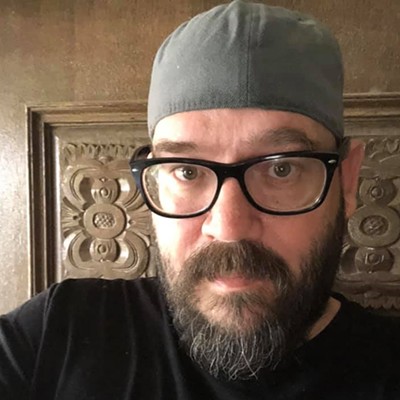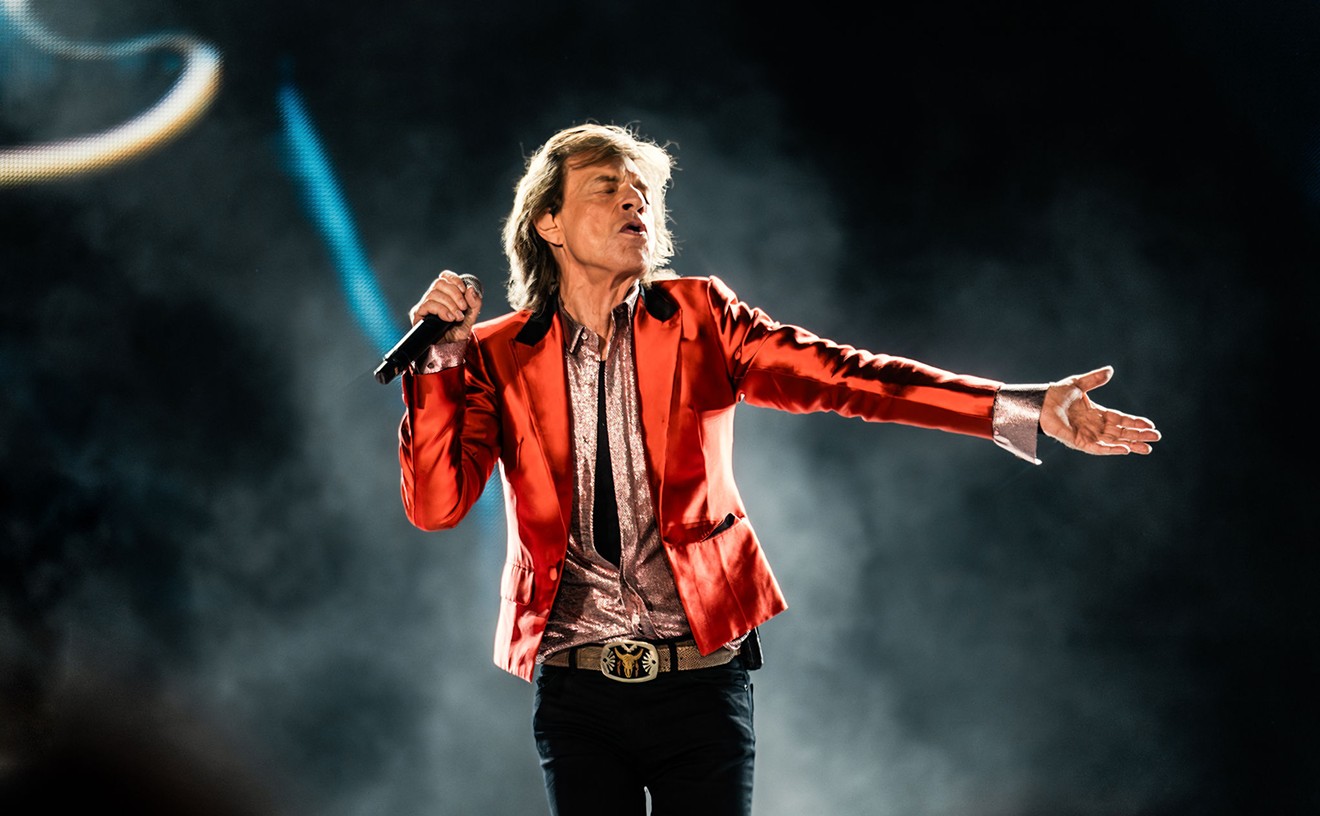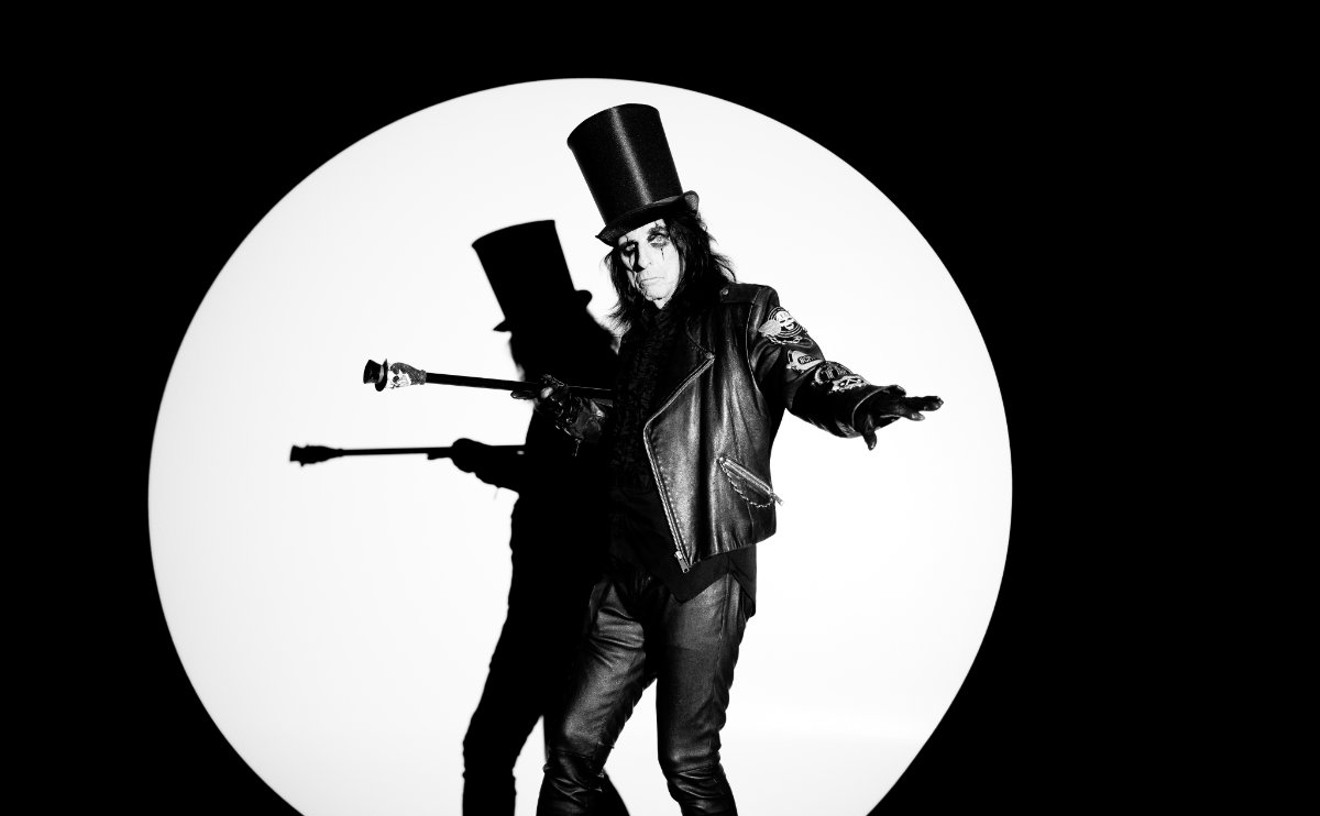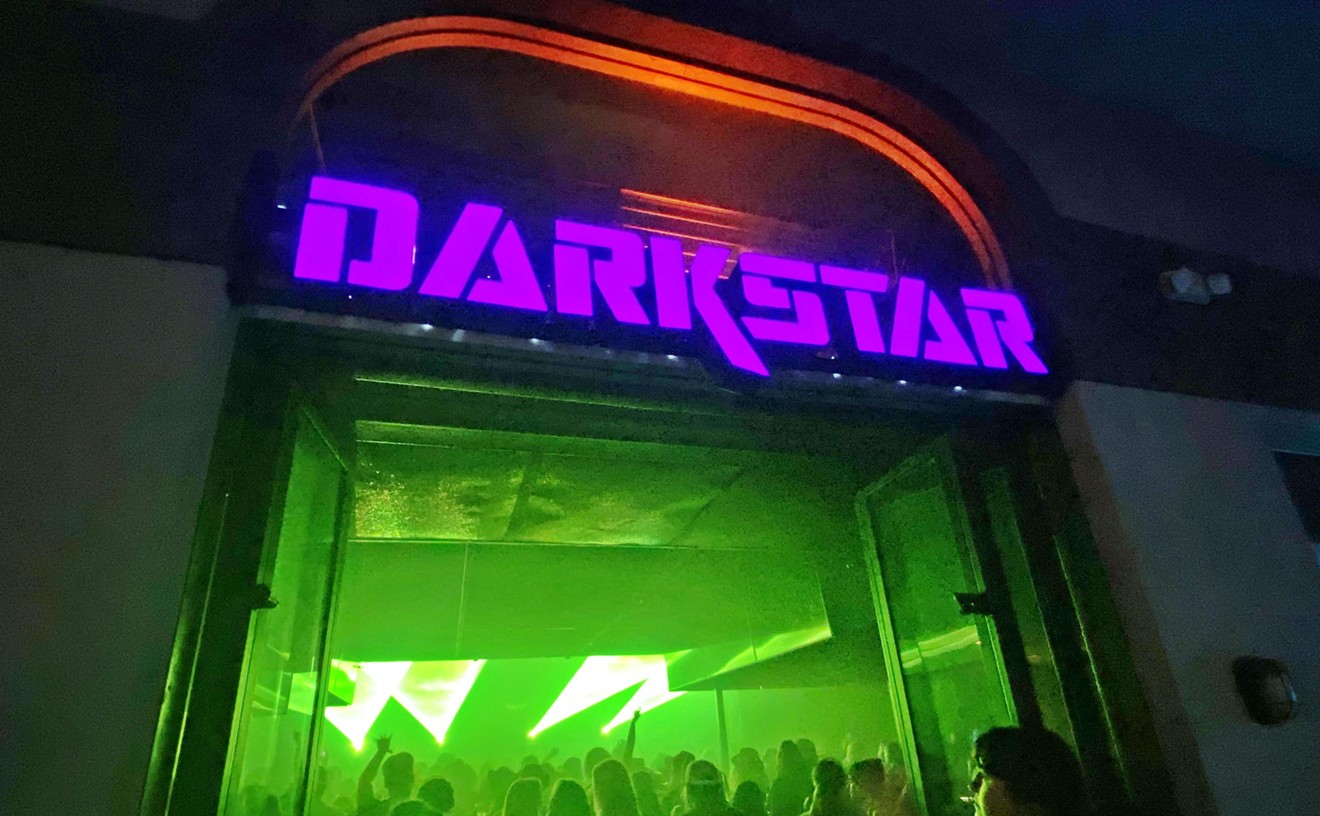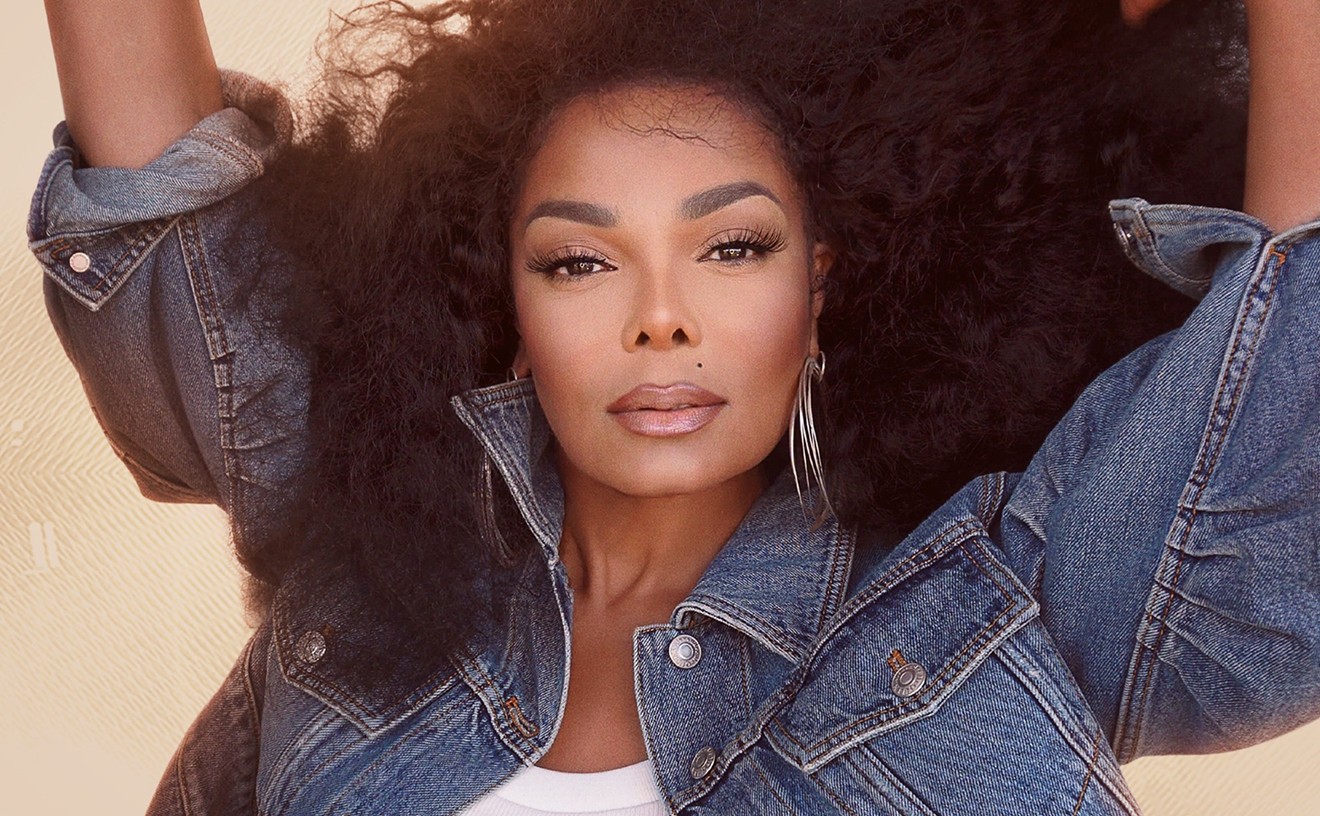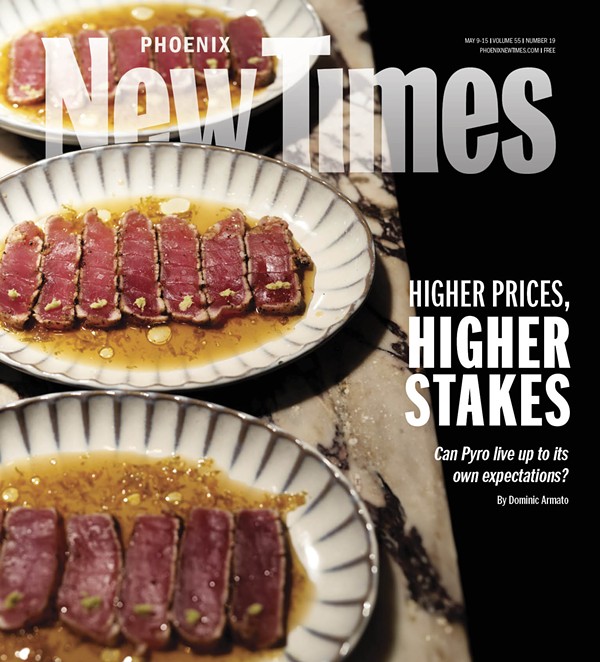Country music queen Jessi Colter is both outspoken and well spoken. The esteemed chanteuse and Arizona native, widely considered to be one of the grand dames of the genre, speaks quite eloquently and loquaciously of both of her storied 43-year career in country music and her many experiences along the way with husband Waylon Jennings, who passed away in 2002.
Both Colter and the late crooner, whose birthday is on Saturday, are equally renowned as outlaw country artists, which she eagerly told Up on the Sun during a recent phone interview wasn't just some marketing shtick slapped on by Nashville. Both she and Waylon both bucked trends and the demands of record label executives, following their own particular muses. Its one of the reasons why the superstar, his music, and his legacy are still celebrated at events like the Waylon Jennings Birthday Bash on Saturday at Crescent Ballroom.
The party will help raise money for The Waylon Fund, which supports research for the treatment of diabetes -- the disease that claimed his life -- at local bioscience firm Translational Genomics Research Institute (or TGen.)
Colter also discussed the party and its aims to celebrate Jennings' legacy during our chat, as well as her feelings on the idea of new country artists being branded as outlaws, why her husband loved Arizona so much, her own solo projects, and the recent passing of fellow legend George Jones.
Up on the Sun: Your last album Out of the Ashes came out in 2006. Any plans of recording a new one, especially with your son Shooter Jennings producing? Well, yes, he's going to produce an album. We've got to find time between what he has to do, between records of his own, producing some young groups in his field, and so forth. I have already begun with Lenny Kaye [creating] a very interesting album. It's actually the Psalms, right off the page, and we're hoping by the end of the summer to have that completed.
We've been working on that on-and-off for a couple of years because he tours with Patti Smith. And then I have a number of inspirational things that Waylon helped produce. He produced some of them, I produced some of them, and I'm going back this summer to pull together our masters. And so I'm hoping to have into fall a couple things ready to go, certainly by the end of the year.
Any other tidbits you'd like to reveal about those projects? I'm also working on a book, slowly--steadily but surely--which will talk about my turning points in life. Waylon wrote a marvelous book called Waylon. He told me once, "I'm going to write my story before somebody gets it wrong," and he and Lenny Kaye wrote that and it's a great, great book.
Shooter has begun working with a writer on Waylon's story, and it's going to be very different from most life stories. It's going to be very artistic. [Waylon] didn't like Buddy Holly's movie. He thought it was awful, nothing like Buddy. They didn't capture him. It's very hard to capture a personality. It will be done differently.
How hard is it to write new songs and material? I have to manage the estate and deal with the publishing. so I've not been into just writing my own songs and doing that [as much]. I wrote another entire Psalms album with a classical music [composer], Ken LaFave, a great friend of mine. We worked three years on-and-off for that.
So I'm going to tie everything together, hopefully bring them to a head. But for right now I've just been doing charity things, just appearing for charities. I don't know what you would call what I've been doing. exactly, but I've been having fun and just living.
How much did Waylon love living in Arizona? Oh, he loved it. He felt like he romanticized his music here. He felt like that's where the true... he was in Texas and always loved it from the time he was a very small child, and he did his things there, his beginning things, his DJing at 12 and all that. But when he came out here it was probably like striking out on his own and finding his way, and those initial impressions, they go very deep, and he felt for Arizona and Arizona loved him.
There were such love moments with his music here, like living down in Coolidge--he would take people in the last few years of his life down to the Galloping Goose. That represented a big-time club, even though it was in Coolidge, and Coolidge had KCKY that really drew artists down there. A radio station in those days could make a difference. And so there were steps that he took here that brought him to be known nationally.
What is Waylon's ultimate legacy, both as a performer and as a person? First of all, I feel he was one of the greatest interpreters of song in our generation and along with that, his life had a great breakthrough as a young man. Somebody else actually introduced him to drugs and he chose that path for a while. Then he chose, against great odds, to walk out of that. And before that, Hank Williams had set this dream of self-destruction, just like many of the rock artists have.
That sort of thing is appealing to some artists. Sure. Before, the young people like Waylon grew up hearing about Hank Williams. Hank chased women and shot up things and he did drugs. That all sounded romantic, people not realizing what that really was, and [they] really didn't understand that he had about a seven-year career, lived fast, lived hard, died young. And that's who the people idolized somehow.
But in Waylon's time I feel like what he did helped to break that myth of self-destruction.
What do you think about Waylon's outlaw image? That's what the young artists like to talk about, the hellion in the early days he appeared to be. But the truth was, he made a choice and the last 20 years of his life he lived that choice. And just like James Hetfield, who was a friend of ours... we were on the same show together at one point, and I was questioned, "Were there any outlaws out there?"
I said, "Well, I don't know about that. The term was something given to us by marketing, we were living our music." Yes, there's talented people carrying on good things now. But nobody could reproduce that outlaw period.
Do people romanticize that era? Oh, yes. I've had great producers like Don Was tell me that; "The '70s were so much fun, it was so different." [Kris] Kristofferson compares it to Paris in the '20s. It's like, people were coming together in Nashville... they didn't have any big deals like they have now, huge conglomerates, image-making and all that.
It was all these originals gathered in a place that was poor and hungry and all that. It was a great time to make your mark.
And the outlaws, as such, were simply a marketing term. We were just living our music. James Hetfield, in the same way, had come through all the self-destruction and turned his life around. So I'm saying, besides being a great musician, a great artist, Waylon also broke the myth of destruction and continued until the end of his life. Even with ill health, he worked for twice as much and half as much time. He not only kept his values in the end, he doubled his value. So I say that's pretty good.
Why do you think Waylon was considered an outlaw? What Waylon did and what The Outlaws album did, and it was outselling all country music records to that point, was... because he'd done everything that everybody had asked him to do, and all he wanted was to try to create a sound with... his musicians who he had honed on the road.
This was not allowed. The producers, the businessmen had the upper hand, and very few artists could go in there and take control. Waylon had the gift that allows you to make music from nothing, very much like my father could build his racecars from nothing. But how many mechanics have that ability? Very few musicians have the ability Waylon had, to build from nothing.
He became, through hard knocks, an excellent negotiator, you know. And Johnny Cash, Willie Nelson, Kristofferson, all took their cues--we were working the high land from Waylon's business sense. He knew what wasn't going to work because he had been hurt too many times early on, working up so long, circling the people, being shabby promoters, being with bookers that were liars, all that. Waylon had that great sense and all the guys looked to him for that and respected him.
Do you think that there are any outlaws left in country music? Today, yes, there are innovators coming in. I really think the world of Miranda Lambert because she's stuck to her Texas roots and done what she needed to do. I really like her. There's talent out there.
But now with American Idol there's a whole lot of kit cars built instead of an original that comes on the scene. There's some great vocalists and beautiful [music]. It makes you think that everybody can sing. It's just different, it's a different time and place. An original like Bob Dylan, I don't know if we'll ever see that again.
Are you a fan of any other modern-day country stars? All the young artists love when I come out to their shows. They're so respectful of me, they value me. I just recently did a show with Keith Urban and Vince Gill. A special raising money for the Hall of Fame.
And everybody -- Sheryl Crow, Roseanne Cash, because we were the only three women -- and because the theme was "Outlaws and Renegades," so Kristofferson, Willie, three of the new artists that wanna be outlaws [were also there]. The list is so long...Tim McGraw was there. And I go out to concerts like that and so appreciate them, but I'm gone the next day and just heavy-hearted to think these young people will never know the flow of energy that came from Waylon to the people.
What do you mean? It was such a love thing. There was something so deep in it, and he was so much of the people and for the people. There was an exchange that was--of course I miss [it] tremendously, even though I love to go and watch Kristofferson, and because I was there in the early days, he was writing when these songs were just coming out.
He was stumbling around, had no place to go. So I have that advantage, and I go, and I'm in touch with the road managers. They call me when they come to town. It's just great, but I'll tell you the truth, the rock/country artists coming on, to me, are as interesting as anybody coming out.
Who are some rock and country artists who have caught your eye? Well, it seems like those that I've come to know, they're all struggling. I was on the streets with Shooter, two or three years after Waylon passed away, hanging out with these 27-year-olds that were beginning in LA and at Molly Malone's. And we were all hanging out and I saw their vulnerability and their desire, not only to make it, but to find the music that would be right.
Nashville has had a way throughout history to make sounds, and you get stuck in that sound, and you put all that sound in the production of the record and so forth. Like when we came to be, Chet Atkins had a great sound going on from Nashville, and then what happened with Willie calling Waylon down to Texas and making the young people come alive kind of to a different feel of music, that was a turn.
Garth Brooks turned all the 12-year-olds on. He got young people into music, that was good. But Garth is a very different brand of man than Waylon, and I don't know anybody, frankly, who compares overall, from the kind of standards he has to his musical genius and his ability to make music, make it happen. He was a dark horse in the industry, but he broke through. Had the Dixie Chicks paid attention to what he did, they wouldn't have been in the soup they were in.
Can you explain what you mean? It's been the same age-old struggle with corruption and it's in every field. It just takes a heck of a man to let his creativity come through in spite of the businessmen being very greedy to dominate. It's an age-old problem. So we made it through, did great, kept the value, and continued to increase throughout our life and what a blessing. So I don't feel like Waylon's legacy is going anywhere.
I feel like it will just increase. Actually, what I feel, and I'm just looking for the right direction to do with what we own and have, and I'm getting strength. It's taken awhile to get my strength.
Do you think there are wannabe outlaws in country? I'm not going to point my finger, but Shooter did a great song called "Outlaw You" and said, "If you're going to call yourself this, you need to know what happened." And actually CMT and Chet Flippo from Rolling Stone were very tired of it. For instance one of the new [artists] when asked what does it mean to be one of the outlaws he made some pretty stupid statements, one of them being, "Well, if you're an outlaw you're going to have 300-count sheets on your bus."
And Chet made the statement back to this young man, "Waylon didn't keep sheets on his bus, by the way."
So Shooter wrote a song called "Outlaw You," which goes back to tell them in the 60s what the Nashville sound was, and when Waylon came to Nashville. He's speaking for his father when he won the victory in the [Nashville] studios, which are like Hollywood--the studios owned you and dominated you. They put on your record whatever they wanted after you had created it, you had honed it, you'd worked it.
Sounds pretty restricting. There are a lot of artists that would be happy to go in and sing their part, that's a different artist and there can be a great artist, but they're not an innovator. Now Waylon was an innovator.
So Shooter defended his father in this song. He said, "You know, they ought to outlaw you. You've got the baseball cap, you've got the company telling you what to do and how to be and you're doing that, so don't call yourself an outlaw." Because when whoever cooked up that marketing term said it was functioning outside the system, all it was was they were trying to break the artist from being creatively powerful.
What were your feelings about the recent loss of George Jones? It's a travesty. I spent a long time on the phone with Nancy. I did not go to the memorial, but Shooter and I will be playing at his birthday tribute in November. George was a close friend of ours and of Waylon's.
George loved Waylon. Waylon loved George. We were very close in the down times and in the up times. George was who converted me to country music. And I would just get nervous just being around him for that reason. And he'd always call me out on stage.
When was the last time you saw him? The last time was here at Wild Horse Pass. I'd come in and I had just come home from a trip. My hair was naturally curly and I hadn't even fixed it, and I had my dog, and I thought I could get in and out and give him a hug and leave.
And no, he had to call me out. And it just meant the world to me that he even would.
Waylon just loved him and his voice. And I have beautiful gifts that George had given us throughout the years, and he and Nancy have been wonderful to us. It's a great loss.
What else do you remember from the last time you saw George? You know, when I saw George here, I saw him tired. He was tired, but he couldn't stop the road. Nancy was like, "God, George, how many dates a year? Let's cut it down to 80." You know what that means? Those 80 dates a year are like 240 days gone. You travel there, you travel back, you work.
It's very fatiguing because you're dealing with all these variables. The promoter can change, the sound can mess up, someone gets sick. And so you have to deal with all that. And he was just George, and just wonderful. But he was just tired. So thank God that God called him home.
But he remains. And he kept his values, and Nancy helped him so much. So it was a blessing to have him and he'll never be forgotten.
Do you think somewhere George and Waylon are hanging out? Oh yeah. I've no doubt about that.
Maybe having a jam session in the hereafter? I don't know. Waylon would rather listen to George, and George would rather listen to Waylon. When we were out on the road, we'd join them, sometimes they'd join us. And George would sit backstage and say, Man he can tear up a ballad. He doesn't think he can, because people love that push and that party and that great celebration Waylon brought. It was like a party to listen to him.
And it wasn't anything that he was drinking or taking. It was him. It was his sense of life. Very celebrative. And that's what they loved. He always loved the ballads so much, and did them so incredibly. But the people, for the most part, wanted to hear him lead the party. So they were different in styles.
But I do have a great record I gotta share with Nancy--they were in the studio all night long trying to do this blues song, and it's more fun to listen to this thing. I gotta pull it out and spend an evening listening to it, because they were having so much fun together in the studio. And the studio's another whole venue. It's such a great place to be yourself.
Are you appearing at Waylon's birthday party in honor on Saturday? I'm going to be present. I don't have any plans to [perform] right now--I'll just see how the evening goes and how I feel, because James Fox is a great friend of mine. I will definitely be there.
Last year I couldn't attend; everything was kind of new, it was a start, it was like. I just really wasn't sure... I was sure of why it's being done, so I love all that, but it was emotionally kind of... that's the way I am when I'm dealing with things, regarding what's going on with Waylon. Sometimes on his birthday I would be with the family or something.
But anyway, I plan to be there, I'm a great supporter of what's going on.
Do parties like this carry on Waylon's legacy more that his music? Well, you know people are never going to let go of Waylon. And I'm just 10 years later getting to make decisions on where I'm going to tour his collection and where it will eventually rest. On his Facebook there are over 800,000 people that are still talking about him. He is a very loved person. And his music is very loved. And he's not going to be let go.
That's why I granted them the right to use his name, that it would cause diabetes research to increase. I've been in the laboratories at TGen, very impressed with those who are working together on these things, and how they developed some of their decisions. It's something far over my head, as far as the physics and the science of it, but at the same time I'm very convinced that they're a bright new star on the horizon of research.
Like Up on the Sun on Facebook or follow us on Twitter for the latest local music news and conversation.


